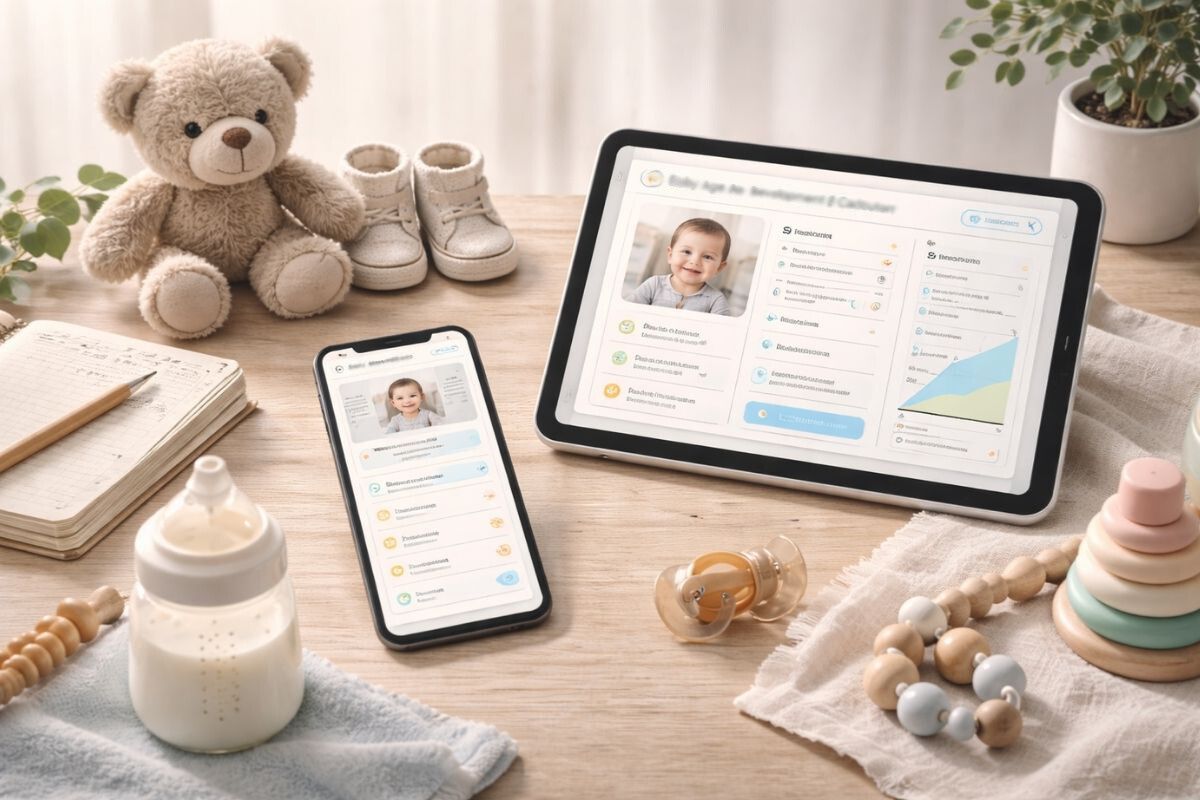The first years with a baby feel fast and tender at the same time. Days blur together. Growth feels sudden. One week a sleeper fits, the next it does not. Parents want reassurance. They want clarity. They want tools that respect how children grow as individuals. Baby calculators have quietly […]
Read More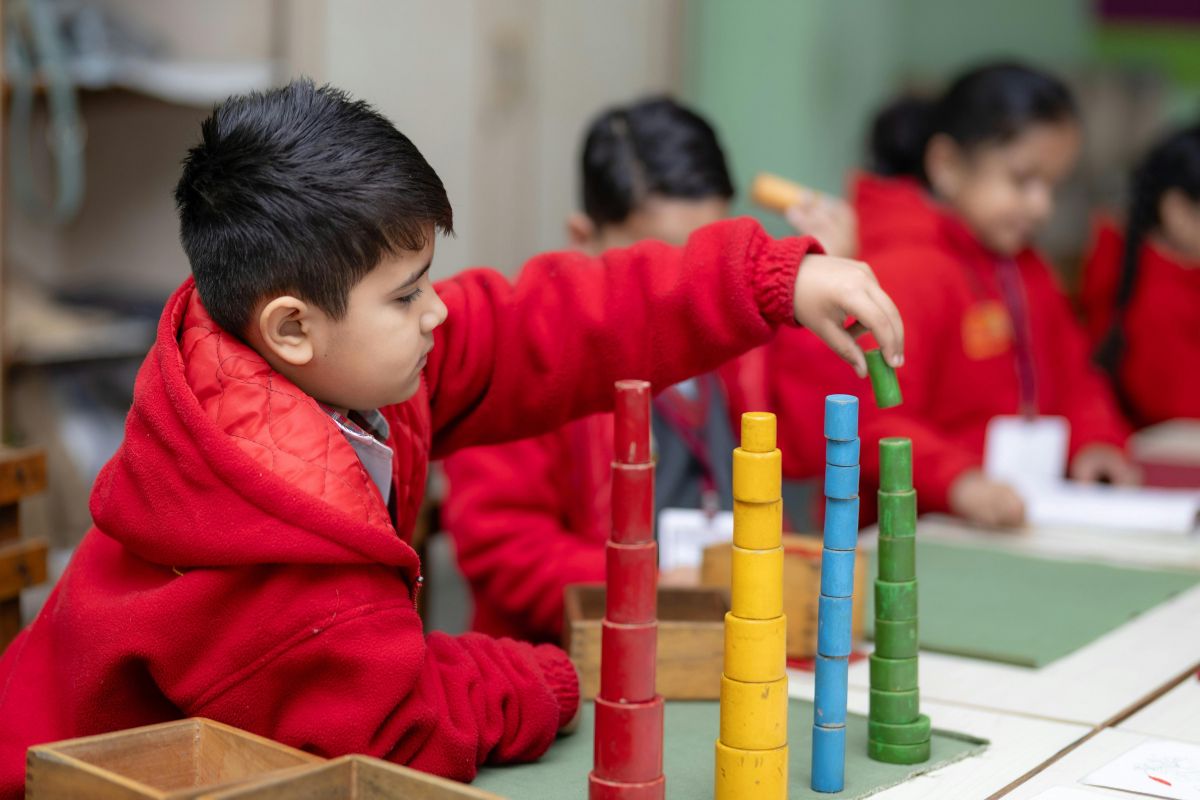
Self-Directed Learning in Montessori
Children are naturally curious. From a very young age, they show a strong desire to investigate, build, and ask questions. Montessori education recognizes this natural drive and creates an environment where children can take charge of their own learning. This idea, called self-directed learning, lies at the heart of the […]
Read More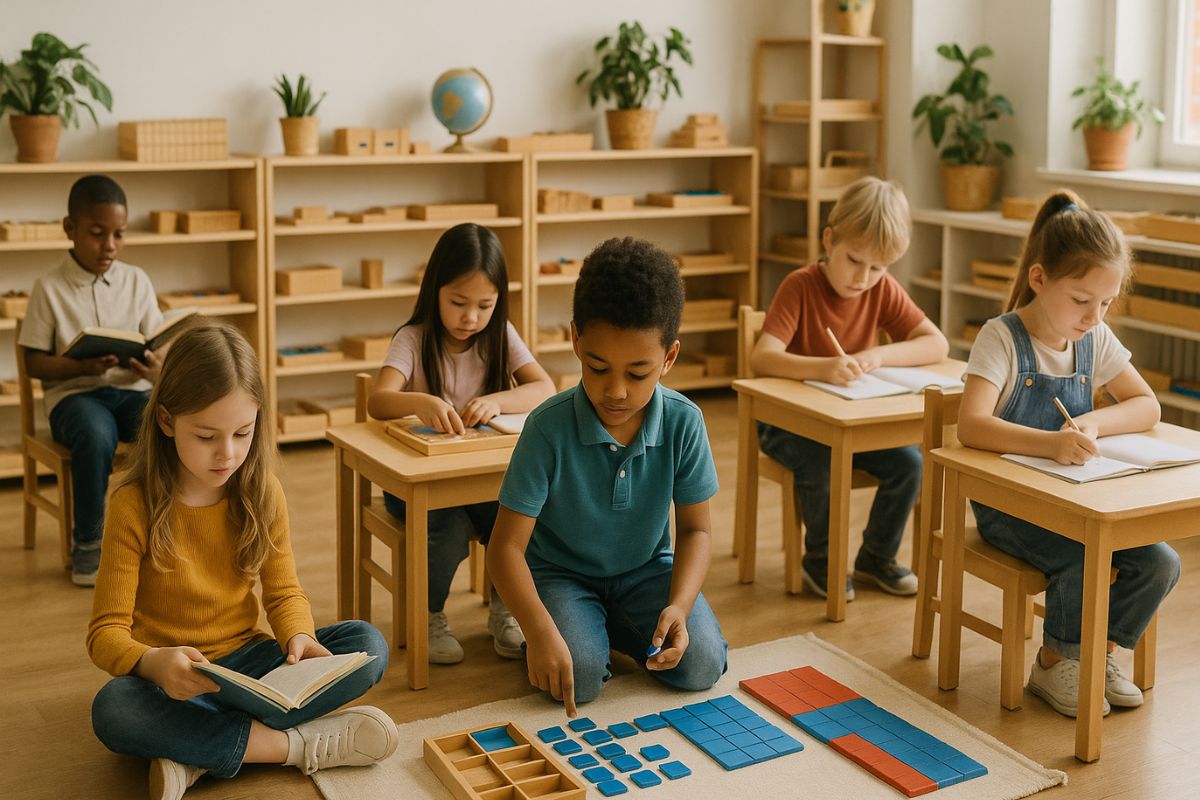
Academic Growth in Montessori Students
Academic success means more than just test scores. It’s about deep understanding, the ability to think clearly, and the confidence to keep learning. For Montessori students, academic growth looks different than in traditional classrooms. It happens through hands-on work, personal interest, and a thoughtful balance of freedom and structure. These […]
Read More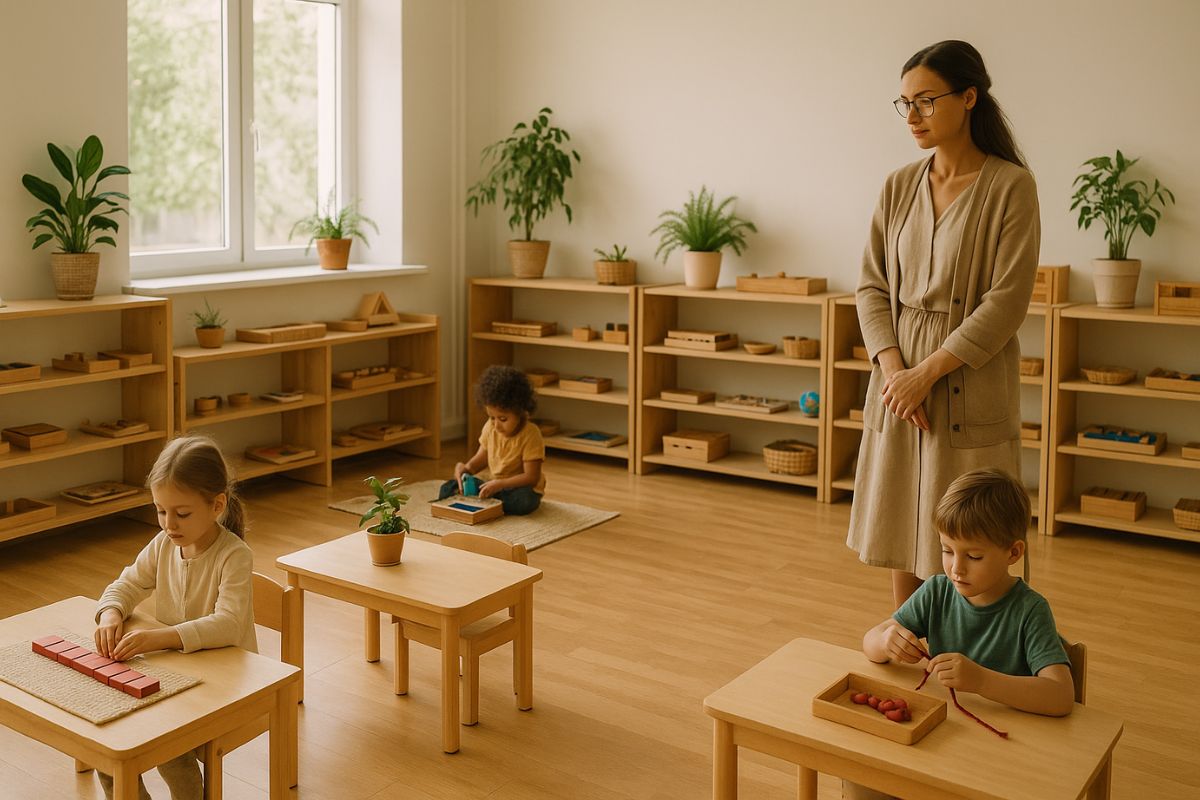
Scientific Insights on the Prepared Environment
Children grow best in spaces designed with purpose. In Montessori education, the concept of the prepared environment isn’t just a theory—it’s a central part of how children learn and thrive. But what does science say about it? How does current research support the careful design of learning spaces that meet […]
Read More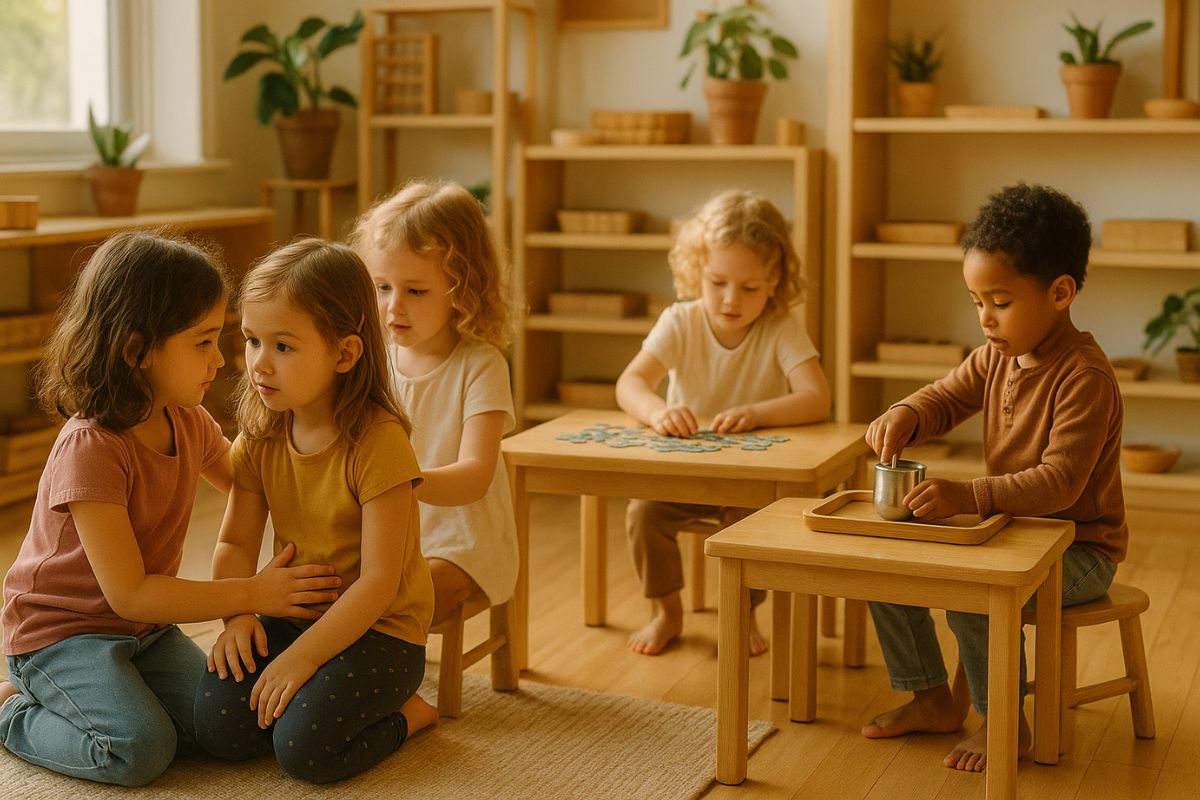
Social and Emotional Growth in Montessori
A child’s development reaches far beyond academics. The way they form friendships, solve conflicts, express feelings, and care for others shapes their daily lives and long-term well-being. In Montessori classrooms, social and emotional growth isn’t a separate subject. It’s woven into every part of the environment, from the way materials […]
Read More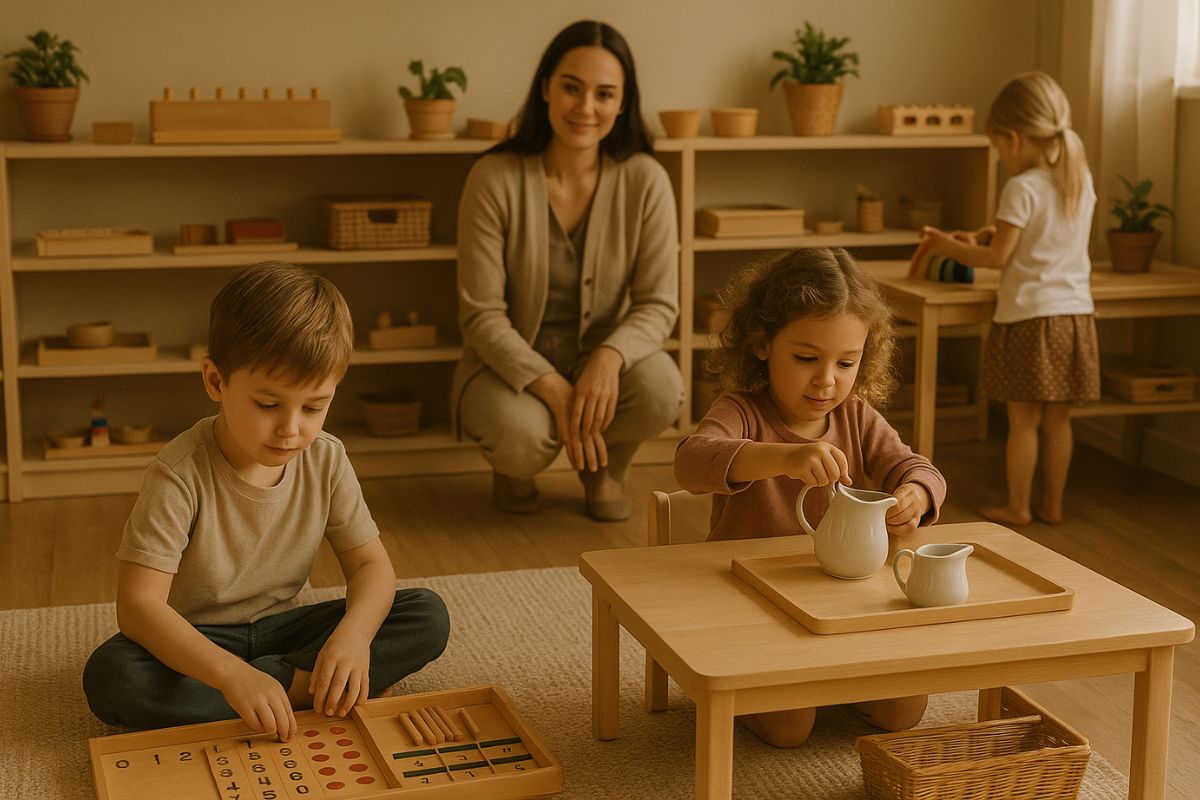
Hands-On Learning in Montessori
Children learn best by doing. That idea is at the heart of Montessori education. Instead of sitting still and listening all day, children in Montessori classrooms are invited to touch, move, build, and explore. Their hands are not idle—they are tools for thinking. Hands-on learning connects the body and the […]
Read More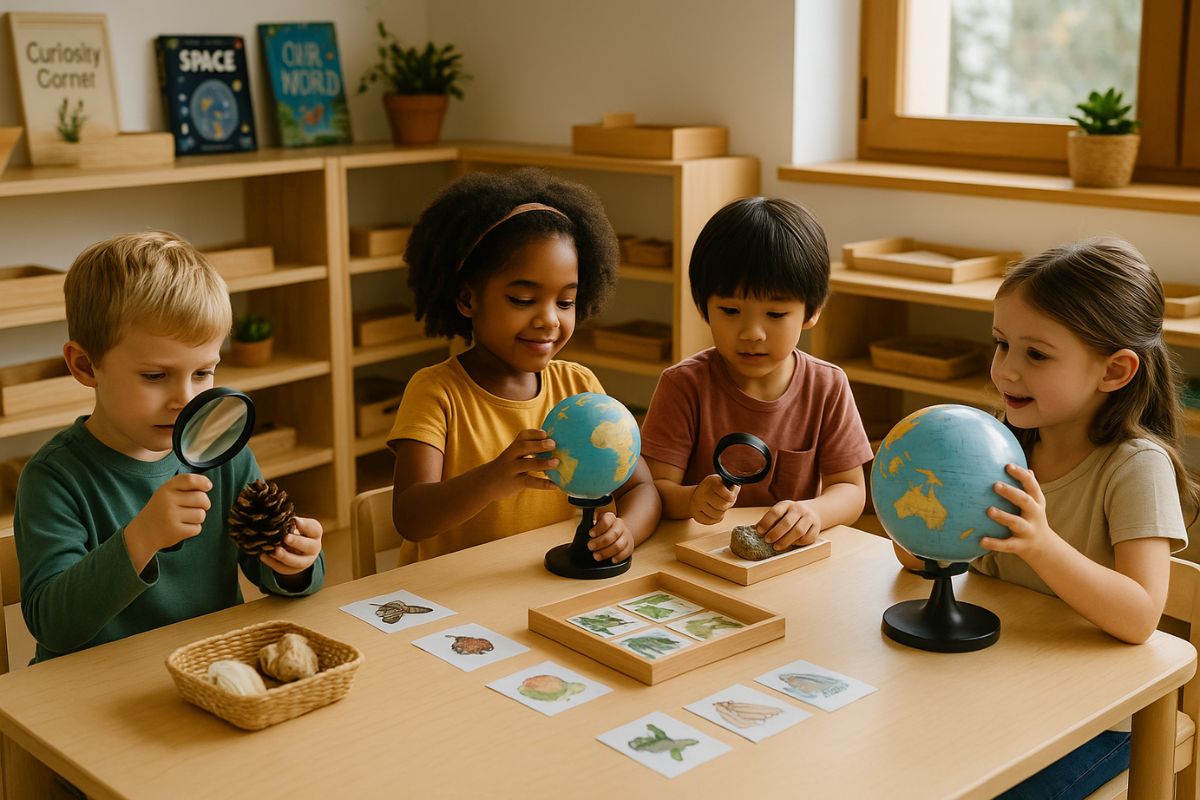
Facts to Spark Curiosity in Young Learners
Children are natural question-askers. They wonder how birds fly, why the moon changes shape, or what ants carry back to their nests. In a Montessori environment, this curiosity is not just welcomed—it’s essential. Whether it’s exploring the wonders of nature or diving into USA facts that broaden their worldview, children […]
Read More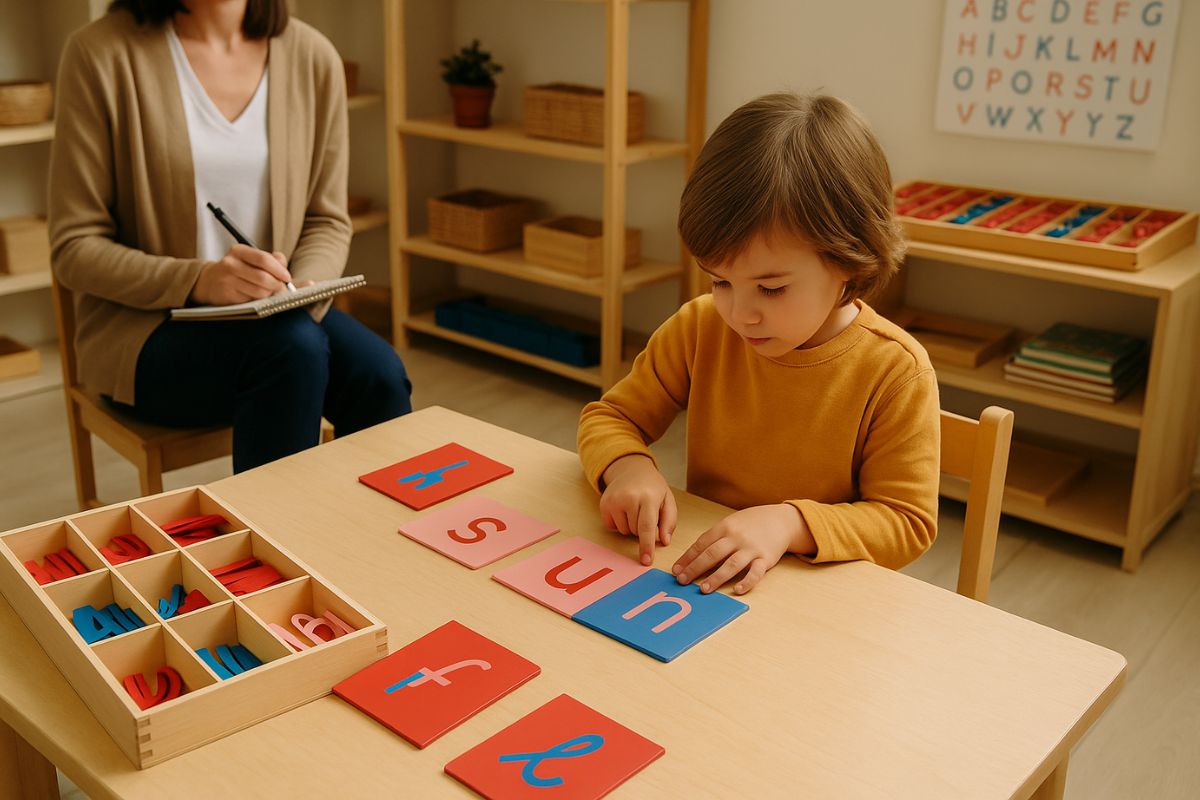
A Research-Based Look at Montessori’s Approach to Literacy
Children don’t start reading just by memorizing letters. They build language from the ground up—by listening, moving, speaking, and touching. The Montessori method understands this. It doesn’t rush the process. Instead, it carefully prepares the child’s environment and experiences, so reading and writing grow naturally, with joy and confidence. For […]
Read More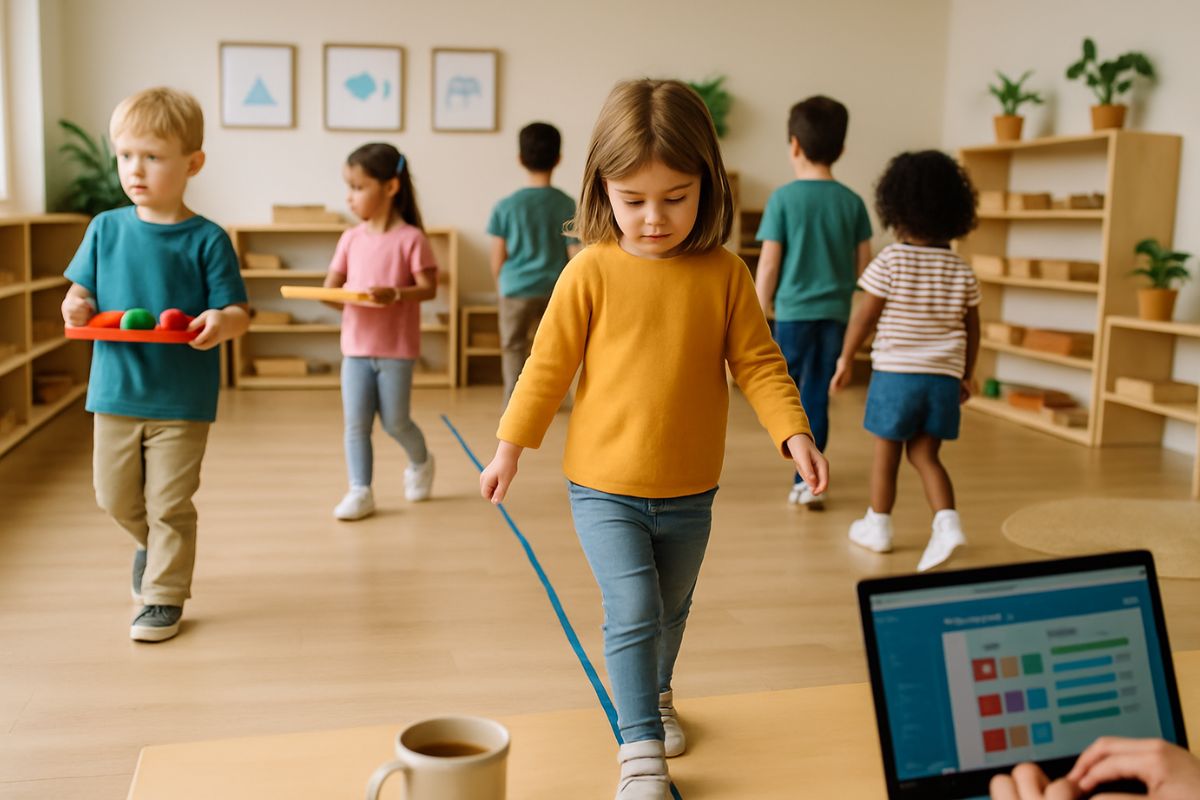
The Role of Movement in Early Learning According to Montessori
Children learn through their whole bodies. Long before they speak in full sentences or grasp complex ideas, they are reaching, crawling, touching, and moving their way through the world. Dr. Maria Montessori recognized that this physical activity was not a distraction from learning—it was the foundation of it. In Montessori […]
Read More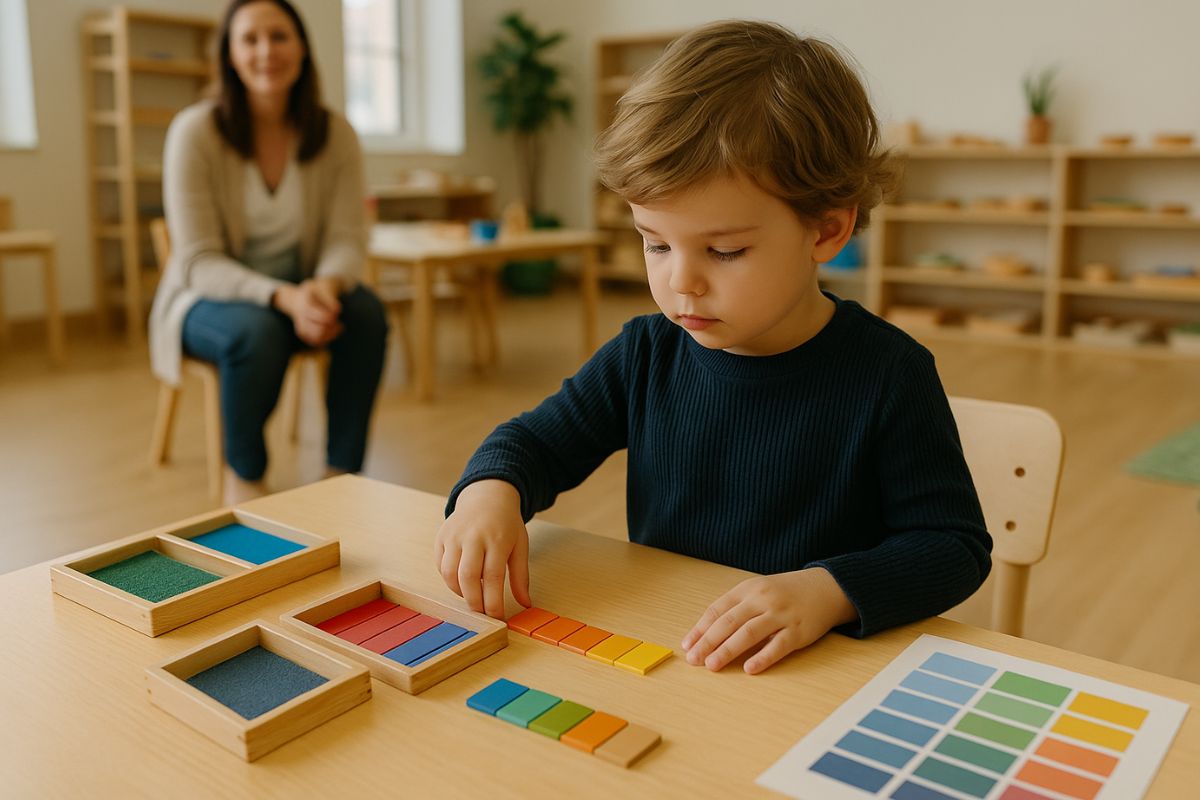
How Sensory Learning in Montessori Affects Cognitive Growth
Walk into a Montessori classroom and you’ll likely notice something different right away. Children aren’t lined up in desks. There’s movement. There’s calm. And most importantly, there’s touch—real, purposeful engagement with the physical world. From pouring water to tracing sandpaper letters, Montessori children are using their senses to build knowledge. […]
Read More